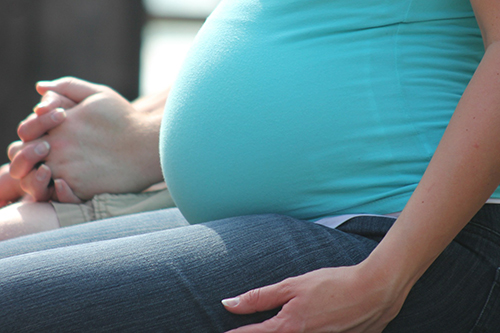
Pregnant women said taking their routine vaccines like whooping cough and flu was even more important during the COVID-19 pandemic but they have doubts about the safety of taking new COVID-19 vaccines during their pregnancy, new research has found.
The findings from the study, which looked at the impact of the pandemic on attitudes towards vaccines and how pregnant women felt about taking a new COVID-19 vaccine, were presented to the British Psychological Society's Division of Health Psychology conference today [Wednesday 30 June], by BPS chartered member, Dr Emma Anderson from the University of Bristol.
Dr Anderson, Research Fellow and Health Psychologist in the Bristol Medical School: Population Health Sciences (PHS), said: "Maintaining routine vaccination of pregnant women is vital to protect against epidemics of preventable diseases on top of the pandemic. We also need to be able to protect pregnant women against COVID-19. Women's attitudes are key."
Some 31 pregnant women from Bristol took part in video call/telephone interviews that explored their attitudes and likelihood to accept routine and new vaccines.
The interviews showed the women saw routine maternal vaccines as important but they were concerned about attending surgeries/health centres due to the risk of COVID-19. They were wary of new COVID-19 vaccines and thought the risks of vaccination were greater than catching the virus, especially because of a lack of evidence of vaccine safety for pregnant women.
Dr Anderson added: "Even highly motivated women can be put off attending for routine vaccination during the pandemic if they have concerns about the safety of appointments. It's clear if we want to encourage more pregnant women to take routine vaccines we need to make appointments efficient, for example by offering vaccines during scan appointments rather than requiring a separate visit.
"We also need healthcare settings to take all possible Covid-19 safety precautions and make sure women are told about them. For pregnant women to accept a relatively new vaccine such as for COVID-19, it's vital to gather research about its safety for pregnant women and to communicate this well."
This work was supported by the Elizabeth Blackwell Institute, University of Bristol, Wellcome Trust [ISSF3 grant 204813/Z/16/Z] and the Economic and Social Research Council [ES/T501840/1].
Paper
'Maternal vaccines during the COVID-19 pandemic: A qualitative interview study with UK pregnant women' by Dr Emma Anderson in Midwifery






